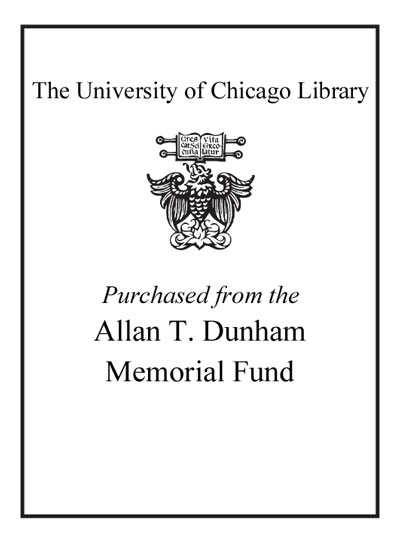|
|
|
|
| LEADER |
00000cam a2200000Ia 4500 |
| 001 |
8909293 |
| 003 |
ICU |
| 005 |
20130423125200.0 |
| 008 |
111103s2012 nyua b 001 0 eng d |
| 019 |
|
|
|a 808623922
|
| 020 |
|
|
|a 9781439199381 (hc) :
|c $28.00
|
| 020 |
|
|
|a 1439199388 (hc) :
|c $28.00
|
| 035 |
|
|
|a 8909293
|
| 035 |
|
|
|a (OCoLC)759912846
|z (OCoLC)808623922
|
| 040 |
|
|
|a BTCTA
|b eng
|c BTCTA
|d YDXCP
|d BDX
|d SPP
|d OCLCO
|d CCE
|d ZQP
|d BKX
|d IH7
|d CLE
|d IAD
|d VP@
|d BWX
|d FRH
|d ABG
|d NQB
|d UtOrBLW
|
| 049 |
|
|
|a CGUA
|
| 050 |
0 |
4 |
|a QR181.7
|b .V45 2012
|
| 082 |
0 |
4 |
|a 616.97
|2 23
|
| 096 |
|
|
|a QW 504
|
| 100 |
1 |
|
|a Velasquez-Manoff, Moises.
|0 http://id.loc.gov/authorities/names/no2012113963
|1 http://viaf.org/viaf/257739793
|
| 245 |
1 |
3 |
|a An epidemic of absence :
|b a new way of understanding allergies and autoimmune diseases /
|c Moises Velasquez-Manoff.
|
| 250 |
|
|
|a 1st Scribner hardcover ed.
|
| 260 |
|
|
|a New York, NY :
|b Scribner,
|c 2012.
|
| 300 |
|
|
|a vii, 385 p. :
|b ill. ;
|c 24 cm.
|
| 336 |
|
|
|a text
|b txt
|2 rdacontent
|0 http://id.loc.gov/vocabulary/contentTypes/txt
|
| 337 |
|
|
|a unmediated
|b n
|2 rdamedia
|0 http://id.loc.gov/vocabulary/mediaTypes/n
|
| 338 |
|
|
|a volume
|b nc
|2 rdacarrier
|0 http://id.loc.gov/vocabulary/carriers/nc
|
| 504 |
|
|
|a Includes bibliographical references (p. 313-356) and index.
|
| 505 |
0 |
|
|a Meet your parasites -- Homo squalidus : the filthy ape -- Island of autoimmunity -- Parasites to heal the gut -- What is asthma for? -- Missing "old friends" -- Mom matters most -- The disappearing microbiota -- Community-wide derangement -- Multiple sclerosis : worms that never come, a tardy virus, and a brain that degenerates -- Modernity's developmental disorder : autism and the superorganism -- Beyond allergy and autoimmunity : inflammation and the diseases of civilization -- The hookworm underground : crowdsourcing "the cure" in an age of immune dysfunction -- Life with the American murderer, and the body's largest organ -- The collapse of the superorganism, and what to do about it.
|
| 520 |
|
|
|a Whether it is asthma, food or pollen allergies, type-1 diabetes, lupus, multiple sclerosis, or Crohn's disease, everyone knows someone who suffers from an allergic or autoimmune disorder. And if it appears that the prevalence of these maladies has increased recently, that's because it has--to levels never before seen in human history. These days no fewer than one in five, and likely more, Americans suffer from one of these ailments. We seem newly, and bafflingly, vulnerable to immune system malfunction. Why? Science writer Moises Velasquez-Manoff explains the latest thinking about this problem and explores the remarkable new treatments in the works. In the past 150 years, improved sanitation, water treatment, and the advent of vaccines and antibiotics have saved countless lives, nearly eradicating diseases that had plagued humanity for millennia. But now, a growing body of evidence suggests that the very steps we took to combat infections also eliminated organisms that kept our bodies in balance. The idea that we have systematically cleaned ourselves to illness challenges deeply entrenched notions about the value of societal hygiene and the harmful nature of microbes. Yet scientists investigating the rampant immune dysfunction in the developed world have inevitably arrived at this conclusion. To address this global "epidemic of absence," they must restore the human ecosystem.
|
| 650 |
|
0 |
|a Immune system
|v Popular works.
|
| 650 |
|
0 |
|a Immunologic diseases
|v Popular works.
|
| 650 |
|
0 |
|a Allergy
|x Alternative treatment.
|0 http://id.loc.gov/authorities/subjects/sh2009001684
|
| 650 |
|
0 |
|a Autoimmunity
|x Research.
|
| 650 |
|
2 |
|a Immune System.
|
| 650 |
|
2 |
|a Hypersensitivity.
|
| 650 |
|
2 |
|a Autoimmune Diseases.
|
| 650 |
|
7 |
|a Allergy
|x Alternative treatment.
|2 fast
|0 http://id.worldcat.org/fast/fst00805550
|
| 650 |
|
7 |
|a Immune system.
|2 fast
|0 http://id.worldcat.org/fast/fst00967877
|
| 650 |
|
7 |
|a Immunologic diseases.
|2 fast
|0 http://id.worldcat.org/fast/fst00967977
|
| 655 |
|
7 |
|a Popular works.
|2 fast
|0 http://id.worldcat.org/fast/fst01423846
|
| 903 |
|
|
|a HeVa
|
| 929 |
|
|
|a cat
|
| 999 |
f |
f |
|i d2d81259-e065-5dc9-827d-3d178b31e24b
|s 82c15a6f-4b97-503d-90b5-58f5ac30cd0c
|
| 928 |
|
|
|t Library of Congress classification
|a QR181.7.V45 2012
|l DLL
|c DLL-Law
|i 1198678
|
| 927 |
|
|
|t Library of Congress classification
|a QR181.7.V45 2012
|l DLL
|c DLL-Law
|e DUNH
|b 72581647
|i 9087371
|

